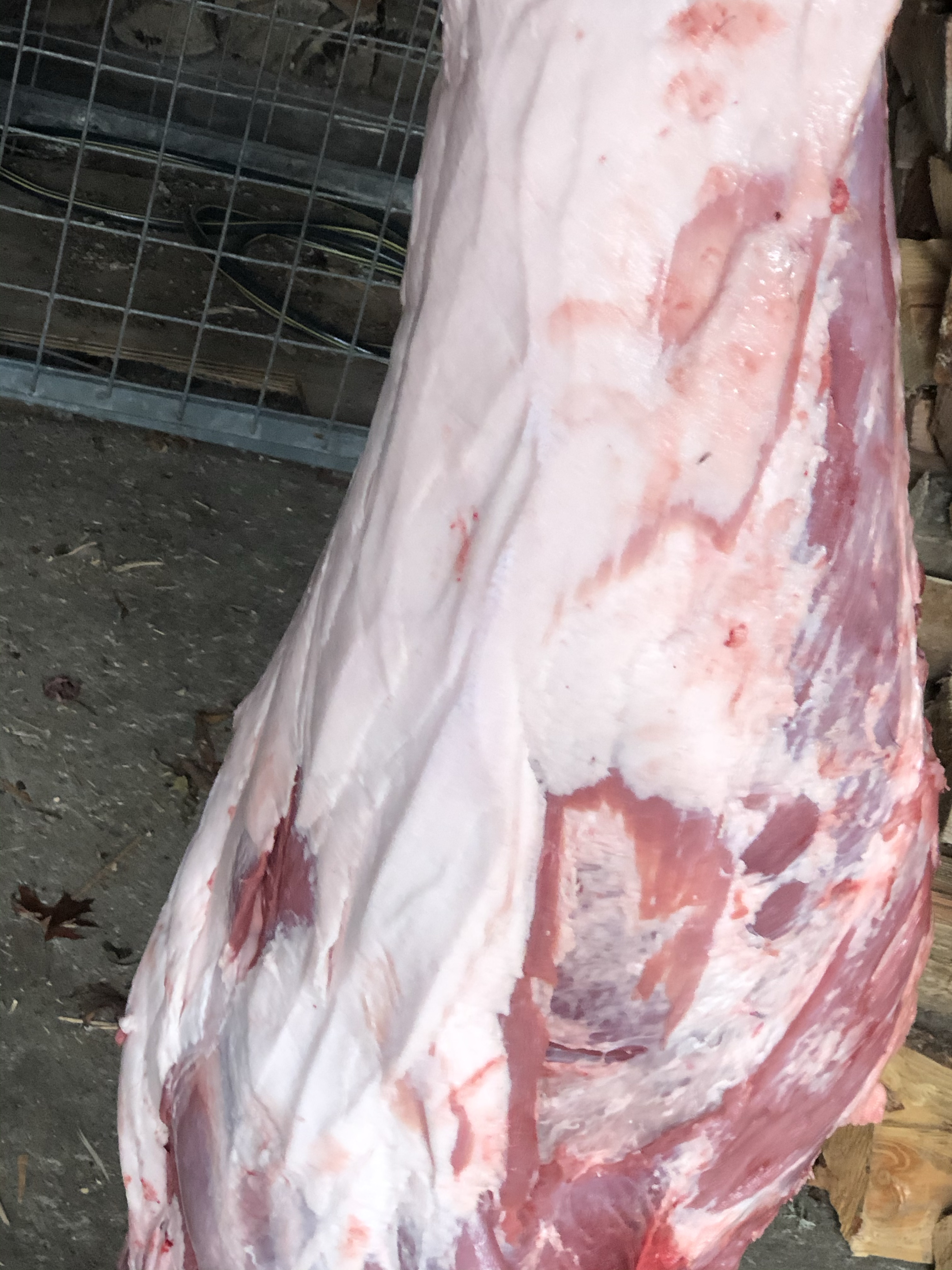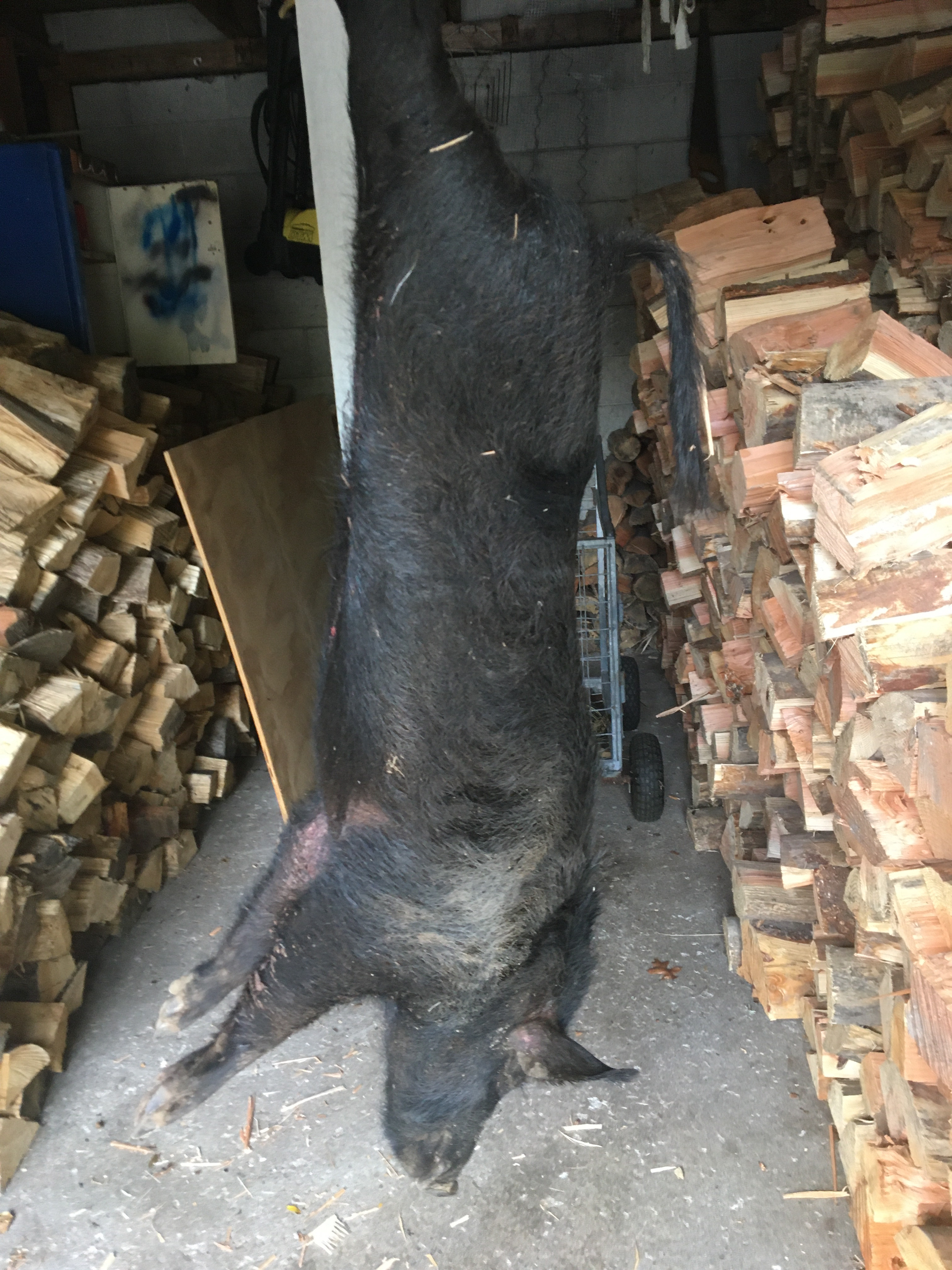I give away a bit of venison to a old guy down the road for him and his wife they are not that well of and appreciate any meat i give them. And i would be happy to give away a whole animal to a family in need.
Welcome guest, is this your first visit? Create Account now to join.
Welcome to the NZ Hunting and Shooting Forums.
Search Forums
User Tag List
+ Reply to Thread
Results 16 to 30 of 40
-
24-04-2020, 08:27 PM #16Member

- Join Date
- Aug 2016
- Location
- Gisborne Rural
- Posts
- 3,443
-
-
24-04-2020, 08:43 PM #17Member

- Join Date
- Apr 2019
- Location
- Inglewood
- Posts
- 187
The issue you run into with meat from homekill or wild game is there is way way to guarantee the health of the animal or processing hygiene.
So they take a simple approach; its your risk when you and your family eat the meat you have killed.
In theory, you won't serve spoilt meat to your family.
But can we trust society to sell safe meat to the general public? Probably not eough to guarantee public health.
How hygienic are most farm killing houses? Not terribly would be my guess based on the ones I've seen
And how is the meat stored afterwards if its being sold to joe public?
Unfortunately the rules are set for the lowest common denominator and like so many other situations, the poor behaviour of the minority ruins it for the majority
-
24-04-2020, 08:53 PM #18
I have always given away excess meat, well except in the eighties when Bergs were buying. I don’t give away crap meat and am super fussy about hygiene. Fish apart from family And our local Kaumatua is not given away and also I don’t freeze much, fresh is best. Fishing is easy to regulate, limit your catch or catch quality. Trout I save in the freezer as an exception for Tangi reasons only.
"ars longa, vita brevis"
-
25-04-2020, 03:03 PM #19
From the MPI site -
Some parts of a wild animal can be bought or sold
You can trade the parts of your recreational catch that are not for human or animal consumption – for example hides, skins, horns or antlers.
-
So, if you were to give me a deer or goat leg, with the skin still on, so I could make an arrow quiver out of it, what I then did with the meat is not your problem. If I was making a 1 arrow quiver, I wouldn't even need much skin, just a long strip.
Perhaps that lovely strip of pelt, on the backstrap, would make a nice bracelet. I could take the meat off myself before I tanned the bracelet.

-
25-04-2020, 03:04 PM #20Member

- Join Date
- Aug 2019
- Location
- Wellington
- Posts
- 334
All good sense thoughts. Would be great to do but the great big no machine will always win. Easiest way is to carry on as per normal I guess.
-
26-04-2020, 10:16 PM #21Member

- Join Date
- Apr 2020
- Location
- Dunedin
- Posts
- 46
I've had the exact same thoughts lately. It's almost criminal that most of our venison is flown to restaurants in U.S. and Germany. Common sense says that the risk of getting sick from a fresh back strap or hind quarter is practically nil, and the benefits of providing this resource to struggling families would be huge. Maybe we can get a petition going and start in on our local MP's, or even volunteer to take a brief course on safe handling of wild game, especially in light of the hard times that may be about to get really bad for some. It would also cast hunters in a very beneficial light, which would of course be a bonus.
-
26-04-2020, 11:08 PM #22
Have given away three pigs in the last weeks to some locals...


Some people have really struggled.Dan M
-
27-04-2020, 01:11 AM #23
No, giving it away in good faith (there is no other motive but kindness) does not fall into the rules given.
But if the supplier was to ask, or take, something, or anything, in exchange, it would fall into the above rules. This includes giving it away to promote a service by means of a prize, or to raise funds (which is already clearly stated).GUN CONTROL IS A TIGHT 5-SHOT GROUP.
-
27-04-2020, 10:29 AM #24Member

- Join Date
- Apr 2020
- Location
- Dunedin
- Posts
- 46
Seems like the pet food angle could be workable. If you're planning on giving to random, struggling folks, via a facebook or local news post, you could write a disclaimer, or even print a label and put in on the bag:
"Warning: this fresh, organic, free-range, pure NZ wild venison, humanely killed and carefully handled, has not been processed or inspected in accordance with government standards. Therefore, there exists a very small chance of bacterial or pesticide contamination. Recommended for use as pet food only".
Don't they do something like that for goat milk, or unpasturized cow milk?
-
27-04-2020, 10:47 AM #25Member

- Join Date
- Dec 2011
- Location
- NI
- Posts
- 13,498
You can give it away to needy people and charities. Stop fussing. Just get on with it. We should all do it.
Its worth it just for the feel good factor. You can even act like an arse on here, then give meat away and the 2 behaviours cancel each other out. Its like going to confession.
Just ensure there is no trading, paying or charging by the giver or receiver.
The only restriction Im aware of is you can't give it to schools, universities, hospitals or prisons.Last edited by Tahr; 27-04-2020 at 10:53 AM.
-
27-04-2020, 10:56 AM #26Member

- Join Date
- Apr 2020
- Location
- Dunedin
- Posts
- 46
As it says here, you absolutely cannot donate your kill. Hence the discussion:
https://www.mpi.govt.nz/dmsdocument/1059/direct
-
27-04-2020, 10:57 AM #27Member

- Join Date
- Dec 2011
- Location
- NI
- Posts
- 13,498
MPI:
This is what I was going by:
What you can't do
You can't serve recreational catch meat or fish to paying customers, (for example to customers at bed and breakfasts or lodges), or barter, raffle or donate it for use as a prize or as a fundraiser.
Schools, universities, hospitals or prisons can't use recreational catch meat or fish.
If you're running a commercial operation on a marae, you can't use recreational catch – you must use commercially processed meat or fish.
You can't sell recreational catch at wild food festivals, fundraisers and the like. If wild game or fish are sold at such events, they must be obtained from the regulated system.Last edited by Tahr; 27-04-2020 at 11:03 AM.
-
27-04-2020, 11:54 AM #28Member

- Join Date
- Apr 2020
- Location
- Dunedin
- Posts
- 46
Hmmm, maybe a bit of a mixed message. Here's what I was going by:
However, because no assurances can be
given about whether the meat is fit to eat, you
cannot donate, raffle, trade or sell wild game
or game birds. For example, you can’t:
• give meat to your local school to raffle;
• donate meat to a food bank;
• sell the meat at a farmers’ market.
-
27-04-2020, 12:05 PM #29
The Coast is renowend for helping out each other and wild game fits in that category,has done for decades.
Bartering is the norm in many cases also whether it be fish,wild game or anything else useful. Needy people,most deffinitely.
Confession.. whats that? Any good Coaster would need a packed lunch and sleeping bag if made to sit in the box
-
27-04-2020, 01:57 PM #30Banned

- Join Date
- Mar 2015
- Location
- North Canterbury
- Posts
- 5,462
My suggestion would be to ask a local vet if they will inspect the carcase for you - for free. A vet inspection is the final word on disease status. Then GPS the location where the animal was shot and make sure it was not inside a pesticide exclusion zone. The problem with homekill sales is that it is not inspected.
Similar Threads
-
Easter P&S Wild game trials
By Petros_mk in forum Trial, Pedigree and Bird DogsReplies: 16Last Post: 19-02-2015, 02:18 PM -
want to buy some wild game
By DH lady in forum IntroductionsReplies: 36Last Post: 22-08-2012, 09:09 AM
Tags for this Thread
Welcome to NZ Hunting and Shooting Forums! We see you're new here, or arn't logged in. Create an account, and Login for full access including our FREE BUY and SELL section Register NOW!!





 47Likes
47Likes LinkBack URL
LinkBack URL About LinkBacks
About LinkBacks



 Reply With Quote
Reply With Quote



Bookmarks